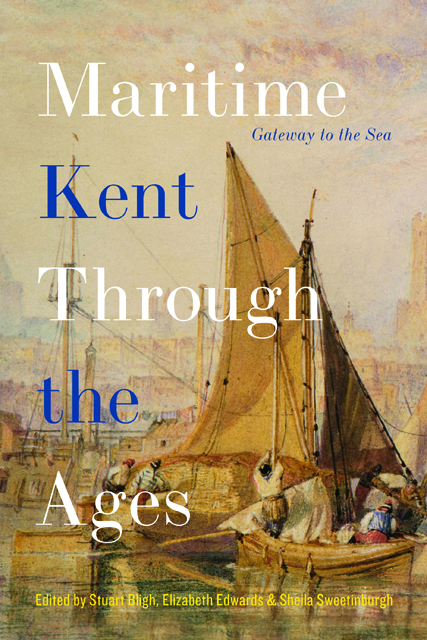17 - ‘Ready for to go to the Sea’: Maintaining Fishing Families in Late Medieval Hythe
Published online by Cambridge University Press: 20 December 2023
Summary
For Kent, as a maritime county, fishing has been a paramount industry for millennia. The rich estuarine and marine waters, both coastal and deep-sea, offered a range of opportunities to catch a variety of species throughout the year. Moreover, the proximity of London and northern France, especially English Calais during the late medieval and early Tudor periods, as well as the county’s large number of urban communities, provided extensive markets for fresh and processed fish through the network of local and foreign ripiers. Nevertheless, such opportunities were matched by the dangers and uncertainties the fishermen experienced. Even though industrialisation has reduced some of the dangers, fishing remains a precarious occupation, while the size and distribution of fish stocks have always been subject to climatic and other natural factors, as well as matters such as over-fishing. Consequently, over the centuries those involved have had to adopt strategies, both regarding their own livelihoods and those of their families and communities more widely, and where possible have sought to aid succeeding generations.
For the fishermen and mariners of Hythe on Kent’s southern coast, this must have been especially apparent in the early fifteenth century following a catastrophic disaster when a hundred men were lost at sea. The town, too, continued to suffer from outbreaks of plague that also deeply affected the local population, and, as Jenny Kermode showed, it was rare for merchant families in urban communities to survive for more than three generations during the late Middle Ages. In addition, Hythe, like other south-eastern ports, was experiencing serious coastal problems due to longshore drift, and work to try to maintain its haven was a continuing struggle (see Kowaleski, this volume) at a time when the country’s western ports were beginning to expand their fishing operations. Taking account of these challenging conditions, this study of Hythe’s fifteenth-century fishermen and their families explores the livelihood and inheritance practices of members of the Stace family in the context of their peers as they sought to maintain their place in the industry.
The civic authorities of medieval Hythe were keen to retain the town’s rights and privileges as one of the Cinque Ports (see Draper, this volume), which at times brought them into conflict with their archiepiscopal overlord.
- Type
- Chapter
- Information
- Maritime Kent through the AgesGateway to the Sea, pp. 387 - 400Publisher: Boydell & BrewerPrint publication year: 2021

